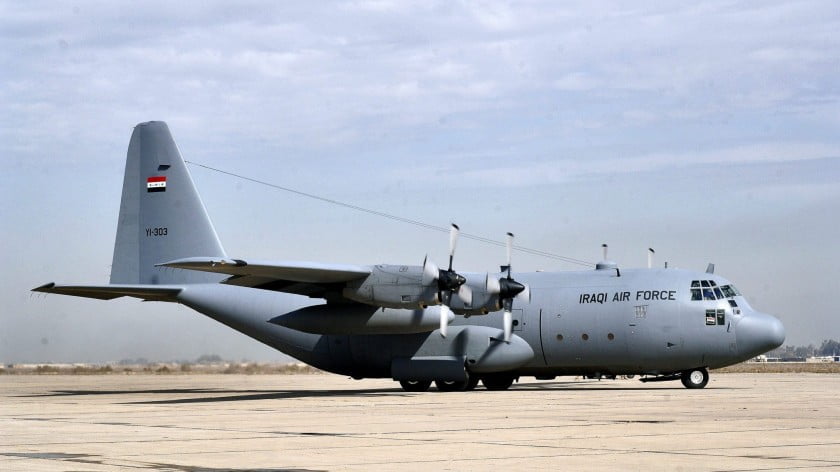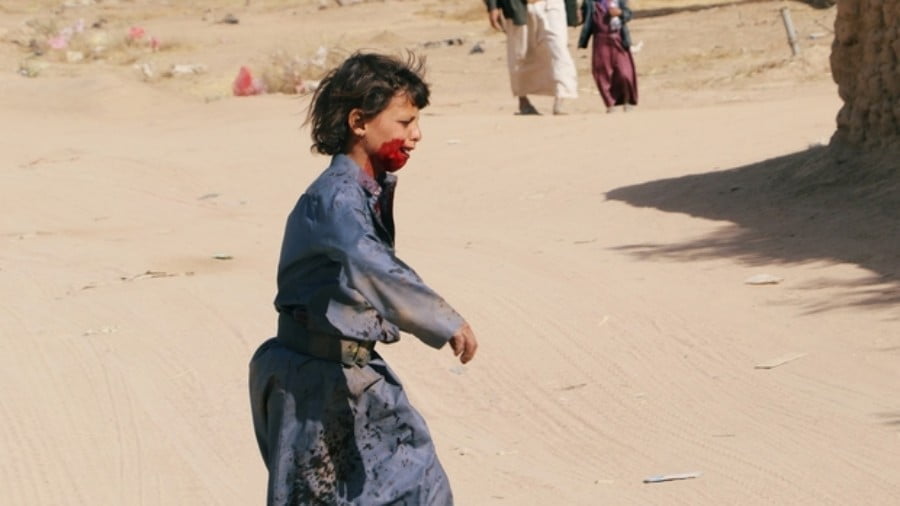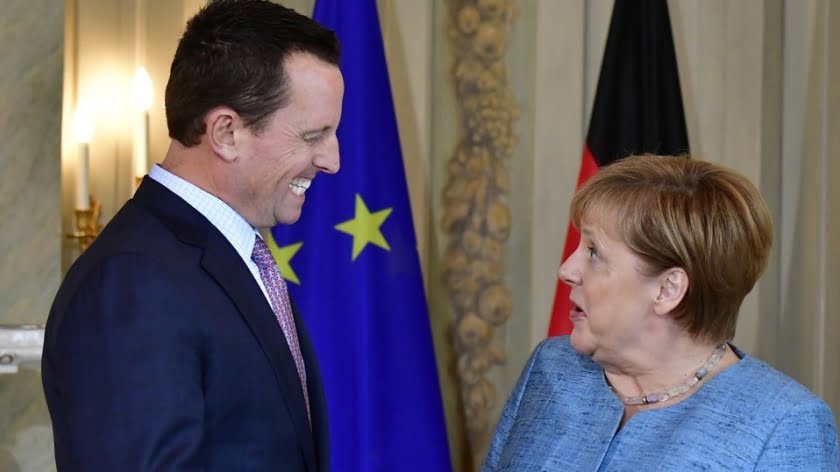A Cynic’s Look at Iraq’s Bombing of Daesh in Syria
Alt-Media is celebrating Iraq’s bombing of Syria after Damascus gave it permission to act against terrorists on its territory without any prior permission, but a cynic’s look at this development suggests that it might be too early to pop the champagne.
Iraq’s recently bombed Daesh near the Syrian city of Deir ez-Zor in a strike that Baghdad claims killed at least 30 high-ranking members of the group, which came after the Syrian government gave its neighbor permission to attack terrorists on its territory without any prior permission. Nobody would suggest that this was a negative development because it successfully eliminated dangerous terrorists, but it might not be the “geostrategic masterstroke” that Alt-Media is portraying it as, or at least not in the way that they think it is.
There’s a popular notion being propagated all across social media that this somehow proves how “strong” Syria is and that it also means that the US is “losing” its position in the region, but a cynic’s look at this development presents a completely different interpretation. Far from being “strong” in what appears to be the final kinetic stage of this conflict, the Syrian Arab Army (SAA) is still rather weak because it’s still unable to carry out anti-terrorist strikes in approximately one-third of its own territory.
This is because the US still considers the land east of the so-called “deconfliction line” along the Euphrates to be its de-facto protectorate, meaning that neither Syrian nor Russian forces can operate beyond that point. Furthermore, the US is openly entrenching itself in Iraq as it begins to downscale its conventional military presence in that part of Syria, so it looks like Iraq is behaving as America’s “Lead From Behind” partner by carrying out that strike.
Should that be the case, then whatever arrangement Damascus reached with Baghdad might actually have just been an indirect “face-saving” deal with the US to allow America to continue bombing east of the Euphrates, albeit by having its Iraqi ally do this on its behalf in a more cost-effective way that also reinforces the domestically popular notion in America that Trump is really “withdrawing”. In addition, one can’t ignore the “Arab Nationalist” optics of this either because they’re also very important to keep in mind.
To explain, following the reopening of the Emirati Embassy in Damascus and Syria’s resultant fast-moving rapprochement with the GCC, an effort is certainly underway to make it seem like anti-terrorist missions in the country are now “Arab-owned” and “Arab-conducted”, which from one perspective is meant to downplay Turkey’s anti-terrorist role against the YPG Kurds but on the other could be manipulated for doing the same with Iran’s too. Of course, Syria supports the anti-Turkish angle and not the anti-Iranian one but it might passively go along with the wealthy GCC’s suggestions about the latter because of how desperately it needs the Kingdoms’ financial assistance for funding its reconstruction.
More and more, it appears as though Damascus is inching closer to requesting the dignified but “phased withdrawal” of Iranian forces from Syria, especially considering that New Cold War rivals Russia and the US are curiously in agreement about the “defeat of Daesh”. This “official” acknowledgement by both, and the drawdown of each of their forces from the country as a result (Russia’s latest one occurred over a year ago in December 2017), raises the question of what Iran’s forces are still doing in the country.
This is an especially poignant point when considering that the last remaining Daesh remnants are in the US’ “sphere of influence” east of the Euphrates and being dealt with by the US- and GCC-backed Iraqi Air Force per Damascus’ own permission (remembering that this conventional wing of its military is Western-influenced unlike the Iranian-influenced militias). This makes one wonder whether Iran’s military assistance to the country has just been rendered “redundant” by the new “Arab Coalition” assembling in Syria with the government’s own backing, which to be clear is being supported by the authorities in order to “contain” Turkey but which might also have an anti-Iranian dimension that Damascus is increasingly powerless to stop.
The only purpose that Iranian forces have in Syria right now is in carrying out unofficial “peacekeeping” operations within the liberated territories since the battle lines elsewhere are frozen as a result of Moscow’s “balancing” efforts and Russia and Iraq are designated by Damascus as being in charge of bombing operations west and east of the Euphrates, respectively. If Syria leverages its GCC rapprochement to the point of ensuring that the Gulf Kingdoms stop supporting terrorism in the country (which they mostly already have), then there wouldn’t be much of a reason for Iran to continue its “peacekeeping” operations.
It’s because of the critical role that Iraq is poised to play in this ever-evolving matrix of strategic interests that its authorization by Damascus to bomb terrorists east of the Euphrates without any prior permission is such a big deal. The US- and GCC-backed Iraqi Air Force is helping the SAA compensate for its weakness in this part of the country and actually perpetuating American influence through the “Lead From Behind” strategy that Washington is implementing in Syria with the support of its Arab allies following Trump’s decision to “withdraw” from the country.
The killing of Daesh members should always be celebrated, as should the developments being made to finally bring peace to the war-torn Arab Republic, but there are many who might disagree with the political outcome that’s progressively unfolding in Syria which might see Iran being “squeezed out” as part of a “compromise solution”. It’s not for sure that this will happen, but a cynic’s reading of the situation strongly suggests that something of the sort is in the cards and that Iraq’s use as the US and GCC’s “cat’s paw” east of the Euphrates is an important part of this plan.
By Andrew Korybko
Source: Eurasia Future







